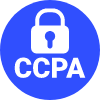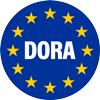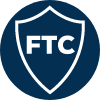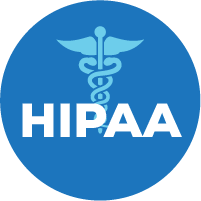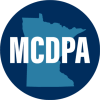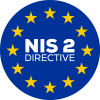Embrace swift framework compliance across industries
Wave goodbye to manual hassles — our platform comes with comprehensive, built-in support for a wide range of frameworks, helping you zip through policy and procedure implementations. Whether it's healthcare, finance, or defense, we've got your back. Compliance Scorecard empowers MSPs to offer compliance as a service to clients in any industry, regardless of what frameworks they must adhere to. And if you want that extra dash of personalization, you can tweak our intuitive templates to fit the unique needs of the organizations you're managing.
Ready-made frameworks to meet any industry’s compliance requirements
Business Risk
The Business Risk assessment is designed to gauge how different organizational units manage and mitigate risks specific to their operations.
CCPA
The California Consumer Privacy Act (CCPA) provides California residents with rights over their personal data, including the right to know what data is collected, to whom it is sold, and the ability to access and delete their data.
CIS V8
CIS Controls v8 are updated cyber-attack safeguards, optimized for modern tech like cloud computing and virtualization, ensuring security in cloud and hybrid environments, and aligning with key regulations.
CIS V8.1
Version 8.1 includes revised asset classes and updated CIS Safeguard descriptions as well as introduces the "Governance" security function, which aligns with the NIST CSF 2.0.
CMMC
Designed to ensure the protection of sensitive unclassified information, the Cybersecurity Maturity Model Certification (CMMC) program applies to Department of Defense contractors and subcontractors.
COSO
The Committee of Sponsoring Organizations of the Treadway Commission (COSO) provides a framework for enterprise risk management, internal control, and fraud deterrence, helping organizations manage risk and improve performance.
Cyber Essentials
A UK government-backed certification that bolsters cybersecurity through five controls: firewalls, secure configuration, use access control, malware protection, and patch management.
DORA
The Digital Operational Resilience Act (DORA) establishes uniform requirements for the security of network and information systems of financial entities and critical ICT third-party service providers in the EU, ensuring robust digital operational resilience and management of ICT risks.
Essential Eight
The Essential Eight is a set of baseline mitigation strategies developed by the Australian Cyber Security Centre to help organizations bolster their cybersecurity posture and protect against various cyber threats.
FERPA Family Education Rights and Privacy Act
The Family Educational Rights and Privacy Act (FERPA) is a federal law that protects the privacy of student education records and gives parents certain rights with respect to their children’s records at schools receiving federal funding.
FFIEC
Federally regulated financial institutions, holding companies, and non-financial subsidiaries must comply with the technology standards set by the Federal Financial Institutions Inspection Council.
FTC GLBA
The Gramm-Leach-Bliley Act (GLBA) requires financial institutions to explain their information-sharing practices to their customers and to safeguard sensitive data, ensuring privacy and protection of financial information.
FTC Safeguards
The FTC’s Safeguards Rule, updated in 2021, requires entities to implement security measures for customer information, providing modern, detailed guidance to ensure data protection by financial institutions under FTC oversight.
FTC Safeguards
16 CFR Part 314
The FTC Safeguards Rule, updated in 2021, requires financial institutions under FTC oversight to implement security measures to protect customer information, providing detailed guidance for ensuring data protection.
HIPAA Privacy
The HIPAA Privacy Rule ensures individuals have the right to access and request copies of their health information from providers and plans, including directing copies to a third party, applicable across all record formats and origins.
HIPAA Security
The HIPAA Security Rule sets national standards for safeguarding electronic protected health information, specifying compliance obligations, protected data, and required security measures to operationalize the Privacy Rule's protections.
HIPAA Security Risk Assessment
The HIPAA Security Risk Assessment helps healthcare organizations identify and mitigate risks to the confidentiality, integrity, and availability of electronic protected health information (ePHI). This assessment is a critical component of the HIPAA Security Rule, ensuring that healthcare entities implement appropriate security measures to protect patient data.
ISO
Established by the International Organization for Standardization, the 27000 series sets international standards for certification in information security management.
MCDPA Minnesota Consumer Data Protection Act
The Minnesota Consumer Data Protection Act (MCDPA) is a comprehensive state privacy law that grants Minnesota consumers rights regarding their personal data and requires qualifying businesses to provide transparency about data processing activities.
NIS 2
The NIS 2 Directive (Directive (EU) 2022/2555) is a legislative act aimed at achieving a high common level of cybersecurity across the European Union by requiring essential and important entities to implement comprehensive measures to manage and mitigate risks to network and information systems.
NIST CSF 1.1
The NIST Cybersecurity Framework (CSF 1.1) provides a policy framework of computer security guidance for organizations to assess and improve their ability to prevent, detect, and respond to cyberattacks.
NIST CSF 2.0 - Governance
The NIST Cybersecurity Framework (CSF) 2.0 is a voluntary framework that guides organizations of all sizes and sectors in managing and reducing cybersecurity risks, featuring a new emphasis on governance practices.
NIST 800-53 Revision 5 Privacy+Moderate
This revision provides updated security and privacy controls for federal information systems and organizations to ensure a comprehensive approach to protecting sensitive information at a moderate security impact level.
NIST 800-53 Revision 5 - Privacy Only
NIST Special Publication 800-53 Revision 5 provides a catalog of security and privacy controls for all U.S. federal information systems except those related to national security, focusing on protecting individual privacy.
NIST SP 800-66
NIST Special Publication 800-66 provides guidance for implementing the HIPAA Security Rule, aimed at helping healthcare organizations protect electronic protected health information.
NIST SP 800-171
NIST Special Publication 800-171 outlines guidelines to protect the confidentiality of Controlled Unclassified Information (CUI) in non-federal systems and organizations.
NY DFS 500
The New York Department of Financial Services (NY DFS) Part 500 is a cybersecurity regulation that applies to financial institutions and requires them to implement and maintain a comprehensive cybersecurity program.
PCI DSS version 3
PCI-DSS version 3 was an earlier iteration of the standard, also aimed at protecting credit card information, with specific requirements for security management, policies, procedures, network architecture, software design, and other critical protective measures.
PIPEDA Canada Privacy act
The Personal Information Protection and Electronic Documents Act (PIPEDA) is Canada’s federal privacy law that governs how private sector organizations collect, use, and disclose personal information in commercial activities, requiring meaningful consent and appropriate safeguards.
SOC 2
A certification that requires alignment with the American Institute of Certified Public Accountants’ Five Trust Principles: security, availability, processing integrity, confidentiality, and privacy of customer data.
Build Your Own
Use our intuitive templates to customize controls and build a framework scorecard based on the unique needs and requirements of the clients you serve.
We integrate with your solution ecosystem.

Want to see how Compliance Scorecard can make you a compliance superstar?
Make compliance simple. Your clients will thank you.


